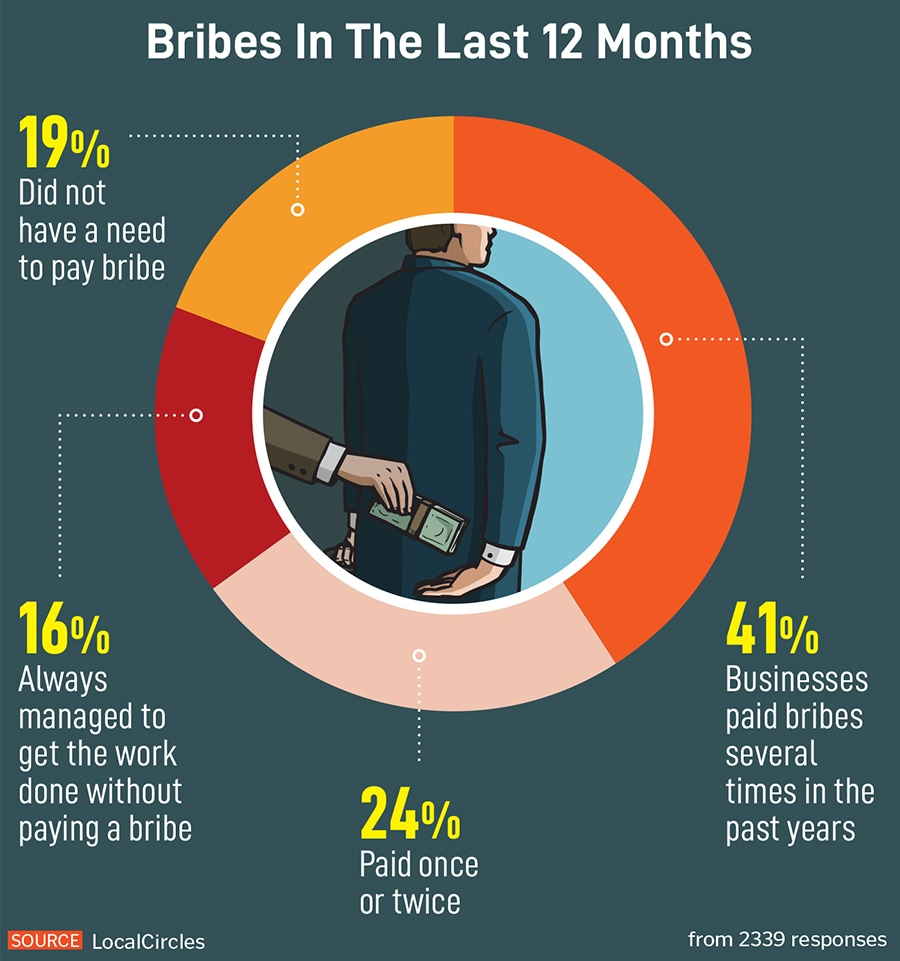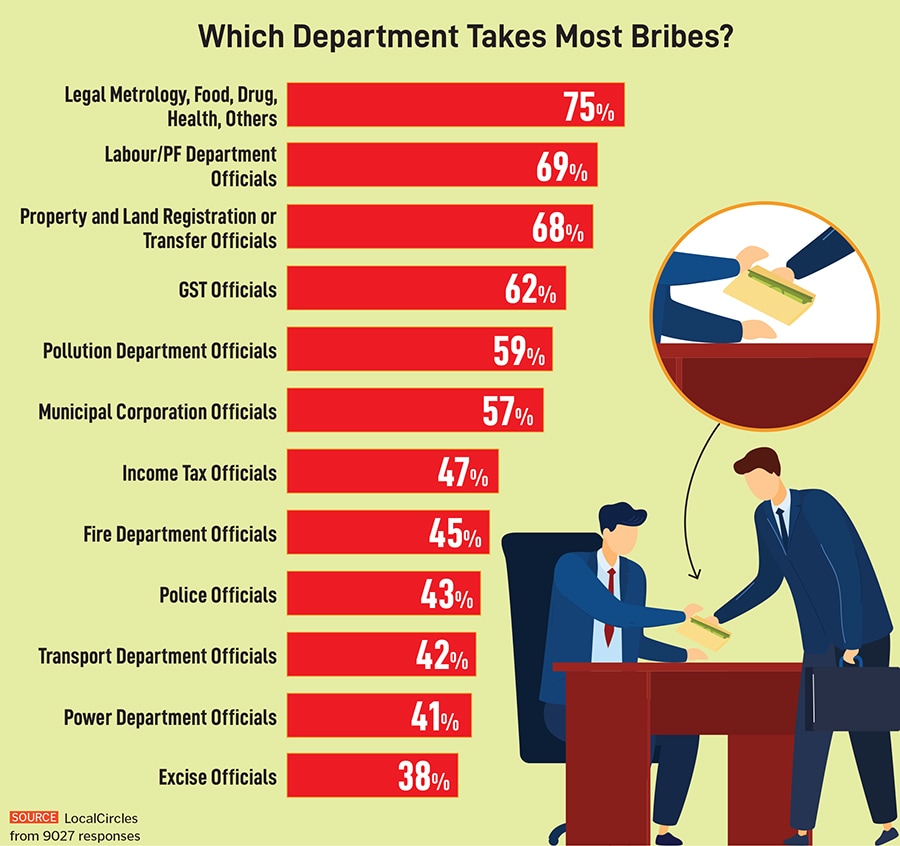 41% Indian businesses paid bribe several times in the past year. Image: Shutterstock
41% Indian businesses paid bribe several times in the past year. Image: Shutterstock
There’s a saying in India which goes something like this – if you can’t get something done in a direct way, you’ve got to do it indirectly. The point is to get it done. While the saying is obviously to be considered for all positive things, it is often associated with people indulging in something wrong, just to get their work done. In India, among other countries, a big ‘wrong’ that people often indulge in is bribery.
The Indian Business Corruption Survey 2024’ conducted by research platform Local Circles, to ascertain the level of bribery in the past year, shows that 66 percent of Indian businesses paid a bribe in the past year. As many businesses would attest in private, bribes continue to be a common practice for speeding up government processes, such as obtaining permits, ensuring compliance, or even acquiring duplicate copies of official licenses or documents related to property matters. The survey—which received responses from 9,000 businesses located in 159 districts of India—further highlighted that 41 percent of them, out of 2,339 respondents, said they paid a bribe several times.

Although India enacted the Prevention of Corruption Act (Amendment) 2018, which makes both accepting and giving bribes a criminal offense, corruption remains widespread in business. As per LocalCircles, reports from the field indicate that bribery paid by businesses to get tasks completed is just one form of widespread corruption in India. However, it is challenging to accurately quantify the extent of business corruption. Bribes and irregular payments are often exchanged by businesses throughout various stages, from registering the business and enforcing contracts on time to qualifying as a supplier, securing quotations and orders, collecting payments, and complying with labor laws. The scale of bribery tends to be higher when attempting to secure government contracts or payments.
The survey report further highlights that 53 percent of the businesses surveyed, paid bribes in cash, while 17 percent paid it in kind (gifts or favours), and 30 percent paid indirectly through an agent. Furthermore, the report indicates that 54 percent of businesses were forced to do it as “it was the only way to get work done,” and 46 percent did it for timely processing, thinking, “it would have taken a long time or significant effort without bribe.”

